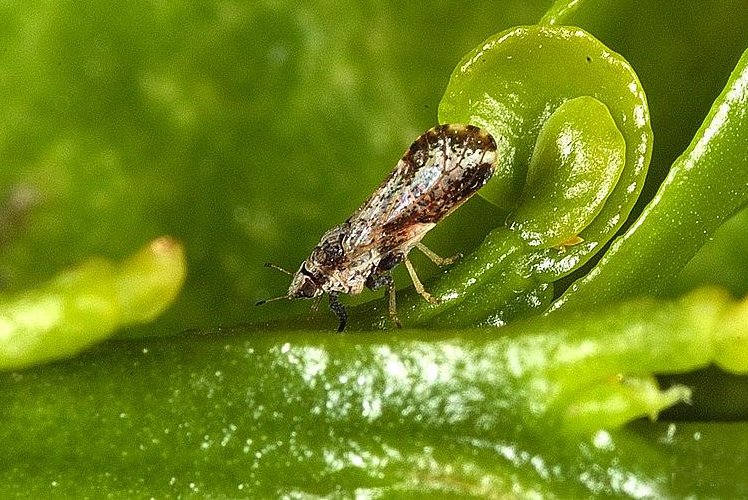The Asian citrus psyllid is responsible for causing huanglongbing, also known as citrus greening, a disease that causes mottled, bitter fruit and kills the trees. (Credit: USDA)
WASHINGTON, May 14 (UPI) -- The USDA said Tuesday that it was upping efforts to breed and release a parasitic wasp to combat a disease threatening citrus crops across the U.S.
The agency is attempting to stem the spread of huanglongbing, also known as citrus greening, a disease that has infected and killed thousands of citrus trees in Florida and is spreading throughout California. Huanglongbing is spread by the Asian citrus psyllid, a tiny pest native to Asia that made its way to the western hemisphere.
Apart from California and Florida, the disease has also spread to at least 33 trees in residential yards in Texas' Rio Grande Valley. The spread of the disease has led to a quarantine of citrus tress across 14 states and U.S. territories.
"Citrus greening poses a significant threat to the citrus industry and the thousands of jobs that depend on it," Agriculture Secretary Tom Vilsack said in a news release. "USDA is committed to fighting and beating this destructive disease."
The USDA will be spending $21 million on the first part of this program and will divide the money evenly among Florida, California and Texas.
Florida researchers have been using the tiny, sprinkle-sized wasps to combat the Asian citrus psyllid and then researchers at UC Riverside also started releasing strains of the wasp imported from Pakistan. The pest is known to pose no harm to the environment, humans or pets.
"This is a serious threat to the citrus industry in California," Vilsack told the Los Angeles Times. The breeding and release program has been expanded "so we can do a better job of containing and ultimately eliminating this disease."
"The goal here is to invest in additional research and to use effectively the research we've already conducted in a targeted and effective way," Vilsack added.










